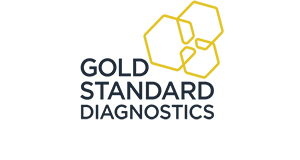NovaLisa Parvovirus B19 IgG, ELISA Kit
NovaLisa Parvovirus B19 IgG, ELISA Kit
SKU
NOVPARG0370
Packaging Unit
96 Tests
Manufacturer
Gold Standard Diagnostics
Availability:
loading...
Price is loading...
Human Parvovirus B19 is the causative virus in erythema infectiosum (also known as "slapped cheek syndrome" or the "fifth disease") in children and causes aplastic crisis in anemic patients. The virus also contributes to joint diseases, embryopathies, and tissue rejection following renal transplants.Parvovirus B19 occurs worldwide. The sera-prevalence of B19-specific antibodies in western developed countries is between 40 - 60 %. The transmission route is not known. Droplet infection or the fecal-oral route is suspected. Blood and blood products are infectious, so that multiple transfusion patients and drug addicts are high incidence groups.Parvovirus B19 replaces in the bone marrow in erythrocyte precursor cell, which are destroyed in the process. In patients already suffering from anemia (sickle-cell anemia, chronic haemolytic anemia), such infection result in so-called aplistic crises in which the lack of erythrocyte resupply leads to a critical shortage. Histological huge pronormoblasts with nuclear inclusion bodies and cytoplasmatic vacuoles in the bone marrow are observed.The incubation period takes 1-12 weeks. Without any uncharacteristic, early symptom an exanthema across the cheeks and sparing the nasolybial folds, forehead and mouth appears which changes in colour and form nearly every day. Also arthralgia (especially with women), pseudo appendicitis, enteritis and influenzalike symptoms may develop. Infections during the pregnancy lead to spontaneous abortions in early pregnancy and fetal damage (hydrops fetalis) in late pregnancy. Certain forms of arthritis are considered complications of parvovirus B19.
| SKU | NOVPARG0370 |
|---|---|
| Manufacturer | Gold Standard Diagnostics |
| Manufacturer SKU | PARG0370 |
| Package Unit | 96 Tests |
| Quantity Unit | PAK |
| Shelf Life | 18 months |
| Specimen | Plasma, Serum |
| CE-IVD | yes |
| Product information (PDF) | Download |
| MSDS (PDF) |
|

 Deutsch
Deutsch





